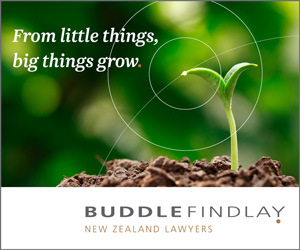 By Celsias Team
By Celsias Team
Posted on Jan. 21, 2011. Listed in:
- Architecture,
- awards,
- Biofuels & Alternative Energy,
- Branding,
- Clean Tech,
- Clean Technologies,
- Coal & Oil,
- Conservation,
- Consumerism,
- Corporate Citizenship,
- Corporate Social Responsibility,
- Design,
- Earth, Soil, & Landscape,
- Economics,
- Education,
- Emissions,
- Energy Saving,
- Finance & Money,
- Industry & Business,
- Infrastructure,
- Lifestyle & Behavior,
- Pollution
They do exist, and for the past eight years, not-for-profit branding think-tank Medinge Group has held its annual ‘Brands with a Conscience’ awards to showcase those that do it best.
“Smart brands do more than simply deliver the goods. They have an ethical edge,” says Medinge Group on its website.
The aim of the awards is to encourage and highlight those businesses that demonstrate humanistic, compassionate, sustainable and socially responsible behaviour. No organisation is too big or small to be an award contender, and the 2011 awards feature some pretty heavy hitting business, as follow (no Kiwi businesses feature unfortunately):
- Aquamarine Power (UK)
- BBC World News– Newsweek for World Challenge (UK)
- Caja Navarra (Spain)
- Masdar City (UAE)
The Colin Morley Award, recognisng excellence by an NGO, went to TED (USA) for its enduring commitment to ‘ideas worth sharing’.
Medinge Group chief executive Stanley Moss says this year’s winners bring to the forefront some of the most important areas of discussion in today’s brand universe, including alternative energy, grass roots’ initiatives, ethical finance, community and social media.
And now for a little more about why these winners are worthy...
Aquamarine Power
Aquamarine Power’s Oyster tidal energy technology produces electricity from the ocean waves. A demonstration-scale installation has been successfully deployed in Orkney, Scotland, proof that this alternative energy strategy could create sustainable zero-emission electricity, heralding the eventual progression away from dependence on fossil fuels.
BBC World News–Newsweek for World Challenge
Now in its sixth year, World Challenge is a global competition aimed at finding projects or small businesses from around the world that have shown enterprise and innovation at a grass roots’ level. World Challenge is about championing and rewarding projects and businesses which really make a difference. In making this award, the Medinge Group wishes to acknowledge a channel of mainstream media for using their power and influence to help those under-appreciated organisations in need.
Of the BBC’s win, Jack Yan, one of the directors of the Medinge Group, says, “This is one of those rare times when we see a state-owned enterprise—the BBC—engage in socially responsible behaviour, showing that it is not the structure of the organisation that matters, but the strength of its purpose.”
Caja Navarra
This not-for-profit Pamplona-based bank loaned €3·3 (NZ$5.7) billion and had a net profit of €200 (NZ$348) million in 2008. Customers decide the social causes to which profits shall be allocated. There is a policy of complete transparency and exemplary peer-to-peer lending; and bank staff are encouraged to do voluntary work. In an era where banks are regarded with scepticism and disdain, Caja Navarra stands as a model for conscience-driven financial institutions.
Masdar City
The world’s first zero-carbon city, designed to be powered by the sun and free of cars and skyscrapers (see Celsias story). Projected to accommodate 50,000 people, at least 1,000 businesses and a university. Now under construction, it is being designed by British architects Foster and Partners, funded by the ruler of Abu Dhabi, HH Sheikh Khalifa bin Zayed Al Nahyan. Medinge’s Simon Nicholls remarked, ‘If it works, it will combine 21st-century engineering with traditional desert architecture to deliver safety, health and happiness.’
2011 Colin Morley Award: TED
TED’s simple credo of ‘ideas worth sharing’ is a concept absolutely core to the philosophy of the Medinge Group. This non-profit organisation believes that sharing compelling ideas is the way to change the world. They have created a simple but powerful mechanism for doing it: an 18-minute filmed talk shared for free on the web, an elegant demonstration of the positive power of internet-borne social media which exists in tandem with regular international seminars.
So what points of action does a brand need to employ to be defined as having a conscience, according to the award orgainsers?
- It has a visible conscience.
- It apologises when things go wrong.
- It invests time and energy in relationship building.
- It promotes the value of caring for one another.
- It acknowledges that we are all fundamentally equal.
- It’s visibly accountable for all its actions.
- It takes risks in line with its values.
“Brands are powerful ideas which embody our values. Today’s wisest—and most progressive—organizations invest in creating and protecting their brand. The most dynamic realize that customers and employers now seek brands which do more than deliver the goods—and do so in an ethical, humane,” says Medinge Group.





